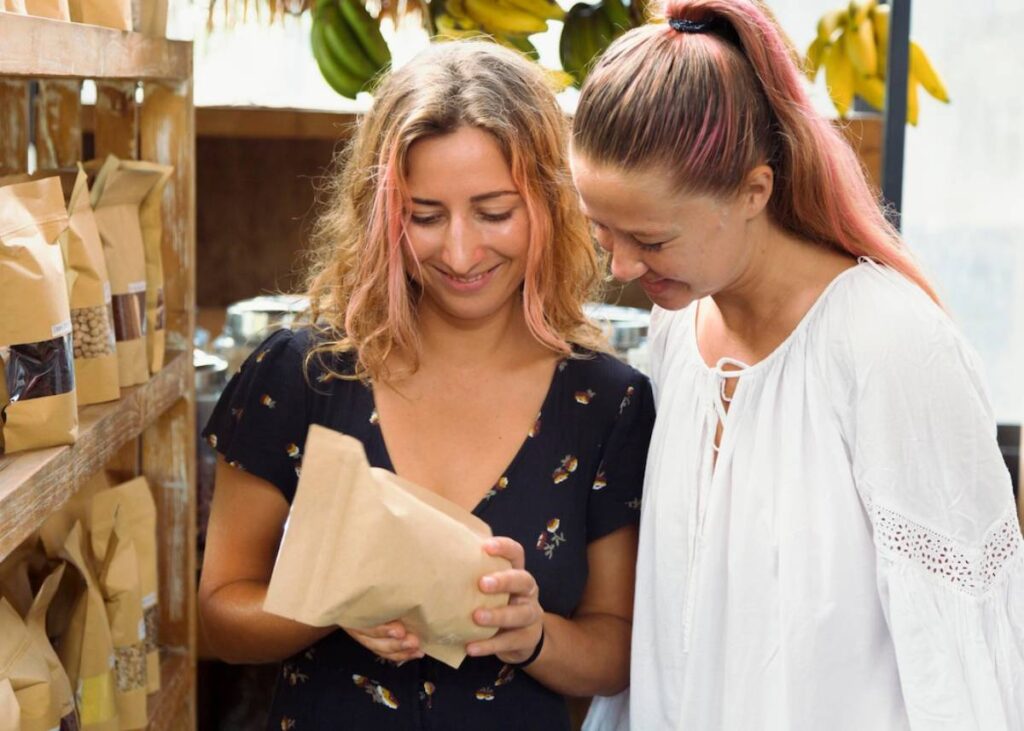Travel Blogs

Zero-Waste Souvenirs: Sustainable Shopping Tips
Travel leaves a mark — not just in memory cards or journals, but also in the trinkets and tokens we bring home. Souvenirs are key in travel traditions. They capture moments and cultures in a physical way. However, many of these mementoes come at an environmental cost.
The souvenir industry can create waste and pollution. This includes plastic-wrapped keychains and magnets made overseas. These products often lead to overproduction. Fortunately, there’s a better way to celebrate a destination.
This guide shares tips on picking eco-friendly souvenirs. It helps you shop sustainably and find zero-waste gifts that respect the place and the planet. You can shop with intention, whether for loved ones or personal keepsakes. This way, you create positive footprints.
Why Traditional Souvenirs Miss the Mark
The Problem with Conventional Keepsakes
The majority of souvenirs found in airports or high-traffic tourist areas are:
- Mass-produced in factories far from the place they’re sold
- Made from cheap materials like plastic or resin
- Wrapped in excessive packaging
- Often not recyclable or biodegradable
These souvenirs lack a true link to the culture they represent and add a lot to landfill waste.
Environmental and Ethical Concerns
Beyond packaging, there are broader issues with souvenir production:
- Energy and emissions from transporting goods across continents
- Exploitation of labour in unregulated factories
- Cultural misrepresentation through generic or inaccurate products
Choosing sustainable travel shopping habits helps support ethical practices and protects the environment.
What Makes a Souvenir Sustainable?

A truly eco-friendly souvenir goes beyond its surface. It should reflect:
- Local origin – Made by artisans or communities in the place being visited
- Sustainable materials – Recycled, natural, or biodegradable ingredients
- Minimal packaging – Avoiding plastic, foam, or unnecessary wrapping
- Functional value – Something useful or wearable, not just decorative
- Longevity – Meant to be cherished and kept, not discarded after a season
Choosing consciously ensures that the souvenir becomes a story, not just an object.
Sustainable Shopping Tips for Travellers
1. Buy Local, Not Imported
Local markets and craft fairs sell souvenirs made by locals who love their home. These products often use local materials and traditional methods. This adds authenticity and cuts down on carbon footprints.
Examples include:
- Handwoven textiles
- Pottery and ceramics
- Carved wooden items
- Locally made condiments or spices
Avoid generic gift shops filled with items marked “Made in China” or other distant locations when the destination is nowhere near.
2. Choose Practical, Useful Items
Instead of decorative objects, opt for items that can be used in daily life. These serve as subtle, ongoing reminders of a journey.
Ideas include:
- Handmade soap or candles
- Reusable tote bags with local designs
- Eco-friendly stationery
- Refillable spice jars or tea tins
These items provide utility and reduce the chance they’ll be tossed aside or forgotten.
3. Support Social Enterprises and Artisans
Look for cooperatives, women-led businesses, and social impact brands. These groups often reinvest profits into local communities and use sustainable practices.
Check if the item is:
- Fair Trade Certified
- Accompanied by a story card or artisan background
- Sold through a verified ethical collective
These purchases do more than reduce waste — they empower people and preserve traditions.
Zero-Waste Gifts to Bring Back from Any Trip
For a clutter-free adventure, consider these zero-waste gift ideas. They’re kind to both people and the planet.
Edible Souvenirs
Food brings people together and tells stories in every bite. Edible souvenirs are widely appreciated and leave no waste behind.
Top picks:

- Local honey or jam in glass jars
- Dried herbs, teas, or spices in paper or metal packaging
- Olive oil or vinegar from regional producers
- Fair trade chocolate or coffee
Pack items in eco-friendly materials. Also, check customs restrictions before flying home.
Experience-Based Gifts
Rather than buying objects, consider giving experiences or digital items.
Ideas include:
- A handwritten travel story or postcard
- A local cooking class voucher or art workshop
- A photo book made from the trip
- A playlist of songs discovered during travel
These gifts offer connection and creativity, with no physical waste involved.
Second-Hand Treasures
Thrift shops, flea markets, and antique stalls have unique items. They are full of character and history. Plus, they don’t require new resources.
Consider:
- Vintage postcards or books
- Antique jewellery
- Locally made kitchenware
- Repurposed décor items
Buying second-hand reduces demand for new production and adds charm to the souvenir.
Packaging Matters Too
Even sustainable items can be wrapped in wasteful packaging. When buying or gifting:
- Ask to skip the bag or wrapping
- Bring a reusable pouch or tote
- Wrap gifts in cloth or recycled paper
- Use natural twine or newspaper instead of plastic ribbon
This small detail makes a big difference in keeping the souvenir truly low-impact.
Where to Shop Sustainably
Sourcing eco-friendly souvenirs often depends on location, but some reliable shopping spots include:
Farmers’ Markets
Fresh, local produce, handmade crafts, and regional treats are often found here. Many vendors use low-waste packaging and welcome reusable bags or containers.
Artisan Co-ops
Found in many cities, these collectives feature work from local artists and craftspeople. Items are often handmade, locally sourced, and fairly priced.
Eco Boutiques
Some destinations now have shops dedicated to sustainable goods. Look for zero-waste stores, refill stations, or eco-concept stores.
Online Ethical Marketplaces (post-trip)
If you can’t buy something on-site, you can find similar products online on platforms like:
- Etsy (handmade or vintage filters)
- Ten Thousand Villages
- EarthHero
- Made Trade
These sites offer eco-conscious options with detailed sourcing information.
Recognising Greenwashing in Travel Shops
Not all products labelled “eco-friendly” or “sustainable” truly are. Here’s how to spot potential greenwashing:
Watch for:
- Vague labels like “natural” with no specifics
- Mass-produced items posing as handmade
- Excessive packaging on so-called eco products
- Lack of transparency about origin or materials
When in doubt, ask questions. Responsible sellers are usually proud to share how their items were made.
Cultural Sensitivity and Ethical Shopping
Sustainability includes respecting the cultures being visited. Respect the meaning of items and don’t misuse sacred or symbolic goods.
Recommendations:
- Don’t buy items made from endangered species or illegally sourced materials.
- Avoid using copies of religious or ceremonial artefacts. Only sell them to tourists and do so with respect.
- Help Indigenous artisans by buying their work directly or through fair channels.
Ethical travel means leaving cultures intact — not commodified.
Real-Life Example: Crafting a Plastic-Free Gift Bundle
A popular zero-waste souvenir set might include:
- A hand-stitched cloth pouch from a village co-op
- Organic tea leaves in a tin from a local grower
- A natural lip balm made with regional herbs
- A wooden spoon carved by a local artisan
This gift bundle shows the culture, helps the community, and skips extra packaging. It’s also thoughtful and practical.
Make Memories, Not Waste
Souvenirs are about storytelling. They capture places, people, and the fleeting moments that make travel unforgettable. But they don’t have to harm the very destinations they celebrate.
You can choose sustainable travel shopping methods and focus on eco-friendly souvenirs. This way, you can give gifts that show both meaning and mindfulness. These keepsakes endure—not because they won’t biodegrade, but because we treasure them.
Traveling with intention means more than just taking things. It’s about coming back with experiences that show respect, gratitude, and care for our planet.









